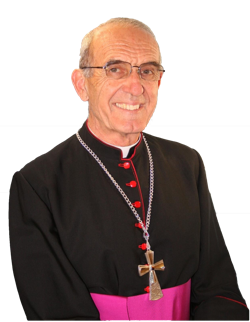At the end of July, we held a Cross Cultural conference in the diocese. Those who participated were our Priests, Religious sisters working either in parishes or at diocesan level, as well as Lay leaders from such places as Nazareth House, St. John of God Hospital and some of our schools.
What triggered the Conference was the changing face of the Church and society in Australia and our Diocese. The Priests and Religious first appointed, like the early settlers in the region, genertally came from Ireland and some from England. In more recent times, following the pattern of change within the Australian population, some of the men and women appointed to meet the needs of this vast Diocese have come from diverse cultural backgrounds.
At present we have Priests from the countries of Poland, Philippines, Tanzania and Nigeria. We have seminarians from Vietnam. Apart from a warm welcome, such priests need a good programme of orientation, inculturation, and ongoing support to help them make the big cultural adjustments.
The welcoming group needs also to be prepared to understand and to work with the cultural background of these priests.
I am grateful to the steering committee from the conference who volunteered to carry forward the important recommendations of the whole group.
We shared and learned much at the Conference. One thing that struck me was how important it is for each of usAustralians and other local people - i.e. all members of the diocesan community - to know and to respect our own cultural background. This is necessary in order to respect the dignity and culture of the newcomers.
The culture of each group has both positives and negatives. When this is understood, it will help us see the positives as well as the negatives of other groups and individuals.
I went from our Cross cultural conference to a meeting of some 80 Oceania Bishops in Fiji. For some time now Bishops from Papua and New Guinea, the Solomon Islands, the Pacific, New Zealand and Australia have been meeting every four years.
A special time was when we met in Rome in 1998 for our Oceania Synod and Pope John Paul II wrote his document "Ecclesia in Oceania" (The Church in Oceania) from the input, discussions and outcomes of the Synod.
Our Oceania gatherings are times to meet one another, share pastoral experiences and discuss how the Church is going in this vast area. There is the opportunity to offer moral support and, sometimes, practical support to each other.
While some of the Pacific Islands are so different we face similar challenges in spreading the Gospel and helping people come to know and love the person of Jesus Christ.
In the Oceania Conference there are indigenous Bishops as well as Bishops from many parts of the world. It is a special experience of how we, though different, share so much in common and are one in Faith and in the Body of Christ. As in Rabaul four years ago we had special experiences of the local people and cultures. We visited parishes for the Eucharist and a social celebration. There was local food, entertainment and, of course, the famous "Kava"! The faith of the local people and they way they celebrate it joyfully was an inspiration for all of us.
At times like this I realise the truth of the saying "None of us has it altogether, but together we've got it all".
As I write this, I am travelling around the Pilbara on my six weeks visitation/confirmation round. This always helps me to be aware of the many cultures in our diocese. I have been told that in Port and South Hedland there are some seventy different cultural backgrounds.
On this visit to Karratha I met new migrants and workers especially from the Philippines and India. There were families, young married couples and singles. As they come for work and a better future, they enrich our Church with their faith and our Country.
When you think of it, apart from the Aboriginal People, the traditional owners of this land, we are all migrants.
It behoves us to welcome the newly arrived. In getting to know them, we can easily see how they truly are a gift to our church and wider society. Our common Faith and relationship with Jesus in our Church unites us all across cultural differences. If any group can live as a multi-cultural society, it is Roman Catholics. Our common Faith, some shared knowledge and understanding of each other as well as good will, are the ingredients necessary to make it happen.
Justin Joseph Bianchini DD
Bishop of Geraldton
September 2006


